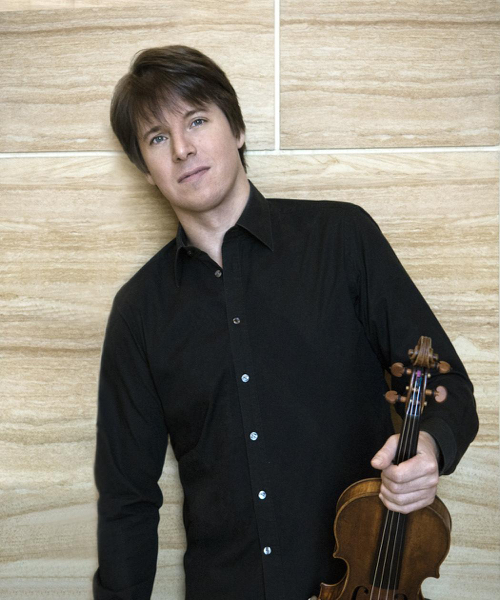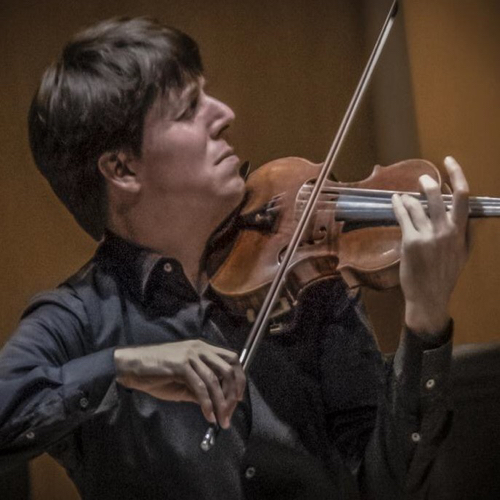On June 16, 2017 I conducted a telephone interview with violinist Joshua Bell, who is in San Francisco to perform the Sinfonie Espagnole by Eduard Lalo with the San Francisco Symphony on June 15-18.
HZ:
I want to begin our chat by sharing with you my own sense that I actually see you as a very “complete musician.” What I mean by that is that:
- I have heard you perform in a chamber music setting
- I have heard you play as an orchestral leader
- And certainly you have performed world-wide in a solo violin role.
Have I left something out? Have you explored composing music?
JB:
Actually I want to venture more into composing. As an example, when I was 20 years old, I would play the traditional Yoachim cadenza for the Brahms concerto. But later I found it meaningful to compose my own music at the point when the composer offered the violin soloist an opportunity to play alone for a few minutes. Then I did the same for the Mendelssohn concerto and other music, as well.
HZ:
Do you find that your life in music is too busy with travel, rehearsals, performances, and more travel? Or have you been able to develop a formula to bring balance to your life?
JB:
Yes, it is a constant balancing act. While I try to find time for myself, I am fortunate to have many friends, as well as three kids in New York City with whom I like to Skype as often as possible when I am on the road.
HZ:
There surely are performance sites and cities where you are in high demand: New York City, Paris, Berlin, Munich, Vienna, and London. Are there places where YOU love to play for perhaps personal reasons?
JB:
Yes, I regularly perform in these cities. However, I do not travel very often to far away places such as Vietnam or Indonesia.
HZ:
When my own 7th birthday approached, I asked my parents for a violin. Was there such an event that first connected you with music in your own childhood?
JB:
My mother played piano. My sister plays, as well. As a child, I began by stretching rubber bands across the handles on my dresser, and exploring the different sound pitches I could create. My parents soon decided to get me a violin…
HZ:
My own family first came to what was then Palestine in 1939, and it was then that Bronislaw Huberman and Arturo Toscanini founded what later became the Israel Philharmonic. Now you OWN and perform on Huberman’s instrument. To me, this is one amazing spiritual connection, right? Do you play in Israel regularly?
JB:
My grandfather was born in what was then Palestine in 1906 or 1905, and I have family in Israel. I play there often. I just gave a recital there in April, and I also frequently play with the Philharmonic.
HZ:
How did you first become connected with the Academy of St. Martin in the Fields?
JB:
When I was 18, I made my first recording with them, playing the Mendelssohn Concerto and the Bruch Concerto. We developed a relationship that led to my being able to conduct the orchestra.
HZ:
My recollection is that I met you first very briefly at the Aspen School of Music many years ago. It must have been around 1989. I love Aspen. Do you still return there periodically?
JB:
I was a student in the early 80’s at Indiana University. I did not attend Juilliard. As such, I was not part of the “DeLay gang” <Reference to well-known violin teacher Dorothy DeLay who coached so many other violinists>. However, I do travel to Colorado frequently. Recently I participated at the Bravo Festival at Vail, Colorado.
HZ:
I hear that you have been involved in a 14-CD project with Sony. Does this celebrate an event or anniversary?
JB:
Yes, a collection of my recordings is being issued soon
HZ:
Did you ever play under the direction of Carlos Kleiber? Or Claudio Abbado:
JB:
No, Carlos Kleiber did not perform with instrumental soloists. And unfortunately I did not perform under Claudio Abbado when he died a few years ago.
HZ:
Please accept my appreciation for spending the time with me and with my readers. This will appear at our site this weekend.
Here is a video of the Brahms Violin Concerto, and you can hear Joshua Bell’s cadenza toward the end of the first movement:


